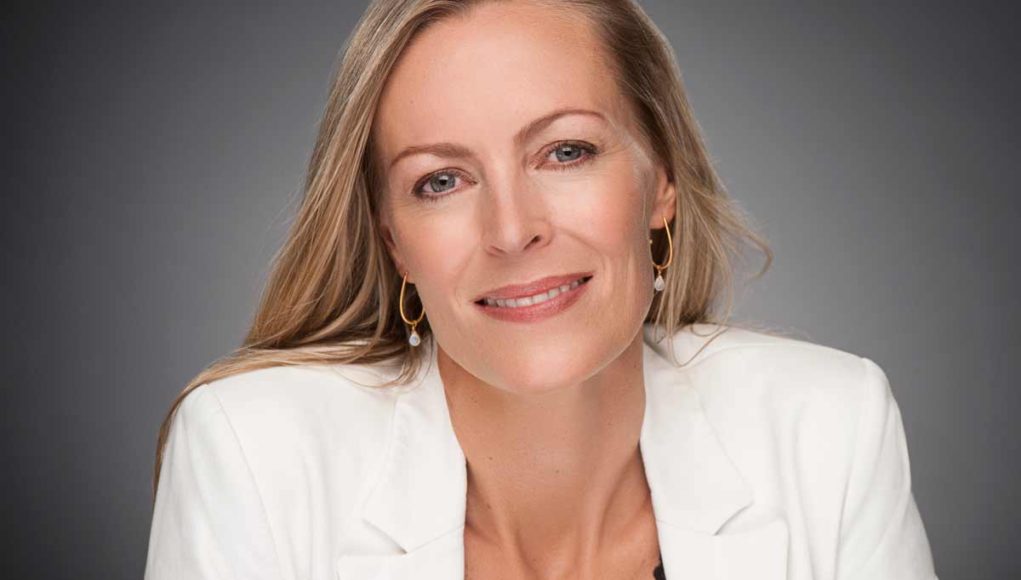Sandja Brügmann (Denmark) is a sustainable leadership, communication, and conscious business expert and international speaker. She was named one of the world’s leadership gurus by the Danish Executive Leadership Association. She is the founder and managing partner of the Passion Institute and has worked with companies such as Sustainable Brands, Crocs, The Body Shop, and the Global Fund for Women.
This article is from the GuruBook – edited by Jonathan Løw.
In the future, only the brands that work to make life better for humanity will survive. Therefore, the leaders we appoint to guide us must also be found among those who can create better lives. Hence, tomorrow’s leaders must be recruited among society’s most ethical, empathetic, innovative, bold, and conscious leaders.
It’s not just important to our well-being in the short term but necessary for our survival as human beings that economic and business models that enhance life become the norm.
A recent survey shows that 68% of people believe that the most successful brands will be those that make the most positive contribution to society (IPSOS, “Global Trends Survey 2017”).
Sustainability: Good for Business Profit, Planet, and People
However, sustainability is not simply a question of ethics. It’s good business. The Business and Sustainable Development Commission 2017 estimates that sustainability would be a $12 trillion-a-year market opportunity by meeting the UN’s 17 Sustainable Development Goals in just 4 out of 60 sectors—food and agriculture, cities, energy and materials, and health and well-being.
To transform the foundation of what is perceived as successful business requires courageous, ethical, and bold leaders who are global systems thinkers and who are willing to experiment, engaging all our human knowledge capacities—not just the rational ability, as is the case in business today.
The future will be about making choices that make life better for ourselves and everyone with whom we are in contact
We need to encourage and elect leaders who create participation-based shared value, organizationally distributed power, and demand and stand for individual autonomy, where the glue of motivation and performance is choice through shared-purpose collaborations and the passionate engagement of individuals.
With ethical responsibility as the pivot for leaders and employees in the business community and the educational system, among our political leaders, and right at the nucleus of our family structures, where each of us takes responsibility for own conscious development, we have the possibility of correcting our present skewed course. The future will be about making choices that make life better for ourselves and everyone with whom we are in contact.
A wise leader first and foremost knows himself well, has worked inwards, has been through guilt, shame, and old emotional inhibitions, and presents him- or herself as a complete person, who has values and is passionate and driven by a sense of purpose.
Authentic leaders are visionary, think long-term, are bold, and dare to disapprove of ideas
The fortifying so-called feminine qualities are brought into play with the present, more “masculine” leadership characteristics—so empathy, presence, focus on us instead of me, together with profit and how we make a difference for people and the environment, all play together.
Authentic leaders are visionary, think long-term, are bold, and dare to disapprove of ideas—even though they may seem attractive in the short term. They are ethnocentric, have high emotional intelligence (EQ), walk in front, and are examples of how it can be done. This requires great willpower, steadfastness, a good ability to set limits, and competent, clear communication.
Co-creation, co-action, and collaboration are in focus, and choices are based on what is good for me, good for you, and good for everyone else affected. That will be the key to future-proofing us environmentally, health-wise, economically, and socially.
_____
READ ALSO: What is Responsible Leadership?
_____
A couple of known examples of this new type of leader are Canada’s prime minister, Justin Trudeau, the business moguls Richard Branson, founder of Virgin, and John Mackey, co-founder of Whole Foods Market, who advocates for conscious capitalism, which among other things has established its own Academy of Conscious Leadership to promote the development of authentic and conscious leadership in the company.
Lorna Davis, CEO of DanoneWave, the largest US public benet company, aspires to achieve B Corp certification by 2020. “In 10 years’ time, people will say it’s inconceivable that business was done any other way,” says Davis. “The notion that a company can only care about profit will be seen as old-fashioned and irresponsible”.
It’s not only the known leaders and top business managers who must shoulder the responsibility for future-proofing mankind. They simply can’t do it alone. It’s everybody’s responsibility that we become better and more conscious leaders of ourselves, our lives, our work, and our families—every day.
Passionate Involvement
There are many potential paths to success, but all require one essential ingredient: passion.
In a system that controls or manipulates the individual, passion is squashed, whereas passion gushes forth when people experience an environment of psychological safety, where they can be themselves, fully. A first impression, this seems straightforward, but it’s easier said than done because it requires a society that focuses on cultivating and celebrating the individual person’s authenticity.
Sustainable leaders understand that the more backing, freedom, and support people get to be authentic, the better they feel about themselves. This means they are more likely to be passionate, contribute more creative solutions and innovations, and provide great value to their companies and society.
The opposite is the case when recognition is lacking and when people are ruled by control and fear; people become absent-minded and indifferent, lacking in vitality and ill in body and spirit.
_____
READ ALSO: How to Lead, Manage and Motivate Knowledge Workers
_____
Society doesn’t benefit from the innovative and creative involvement of these individuals. It is expensive for society when people are not alive and able to realize themselves—in the short term because they are not contributing, and in the long term because it can lead to long-term costly illnesses, and so on.
The statistics speak their own clear language. People are more absent, uncommitted, stressed, and ill than ever before.
Gallup studies in the United States show that approximately half of the American labor work-force is disengaged, which costs the American economy $380 billion a year.
Authentic leaders recognize people and boost each person’s authentic commitment and value. is is good for the economy, society, and the individual.
Purpose: Vital to the Individual, Society, and the Environment
Companies or organizations that work with meaningfulness at the core of their DNA have a greater purpose, with their existence far beyond selling a product or a service. And because of this, they attract more motivated and engaged labor, as employees intentionally choose a place of work that matches their own values and passion.
The deeper meaning is what employees and leaders alike crave. Studies show that 77% of the new millennial generation choose to work for meaningful companies (Deloitte Millennial Survey).
A popular place for both work and shopping is the American social enterprise eyewear company Warby Parker, lead by co-founder Neil Blumenthal. Cool eyeglasses at reasonable prices are designed here. For every purchase, the company donates a pair of glasses to one of the almost one billion people around the world who need glasses. Fifteen percent of the world’s population can’t see and therefore can’t learn or work.
Shades of Green
In my work, I frequently meet leaders who are afraid to communicate their company values openly. This is true even though they are authentic, honest, ethical, environmentally progressive, socially conscious, and managerially authentic. The reason is that we live in a shame-based culture that condemns everything that isn’t perfect. It’s so easy to point fingers and criticize others for any perceived mistake. Instead, everyone ought to look more closely at his or her own behavior.
If we are to be successful in creating a society where authenticity is a priority—which is something that we need drastically—then it is essential that we drop the need for perfectionism and praise the imperfect and honest process toward progress.
If we are to be successful with this vision, we need a culture and human understanding that makes room for innovation, experimentation, mistakes, and learning.
We need a learning process that allows for success, as it is actually quite rare that success is created without trial and error. Being part of—and allowing—a situation based on our own and others’ vulnerability and human imperfection require strength. Let our objective be progress, not perfectionism.
“Have no fear of perfection… You’ll never reach it.”
—Salvador Dali
The good leader changes the perception of the successful life to support regenerative behaviors that support human thriving, the planet’s ability to regenerate itself, and financial profits.
In the near future, humanity will reject the way things have been done hitherto and will demand bold, regenerative, empathetic leadership of itself and everybody in all facets of business, education, politics—all the way into the core of our own families. A society and an existence where success isn’t just measured in profit, but five Ps: passion, purpose, people, planet, and profit.
____
The GuruBook by Jonathan Løw
We would like to thank Jonathan Løw, the editor of The GuruBook for kindly letting us publish this chapter: Sandja Brügmann: The Future Leader is Ethical, Passionate, Bold & Driven by Purpose
You can find Jonathan Løw both at LinkedIn and on Facebook
Sandja Brügmann: The Future Leader is Ethical, Passionate, Bold & Driven by Purpose









